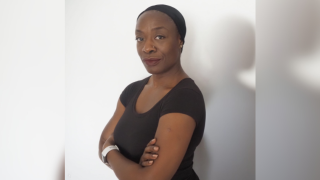At normal ITWs, visitors take part in a fund-raising fun run on day two, around the streets of Chicago or Atlanta.
“The impact of the Covid-19 pandemic on the most advanced economies has been tremendous, but it will be catastrophic on the poorest countries and the most vulnerable groups,” said Monique Lanne-Petit, director of TSF.
“Vulnerable people, who are already struggling to be heard in a normal situation, now risk being silenced as the health crisis leaves them without the help they need.”
In Turkey, education centres for Syrian refugees have been closed because of the virus, but TSF has been providing digital learning for the children so they can continue their education, with tablets and free internet data.
Across the border in Syria itself, where the civil war continues after nine years, TSF has connected 10 medical centres, helping 160,000 patients.
Lanne-Petit said: “TSF’s mission and priority is to support these vulnerable groups and those who assist them through technologies and telecommunications – now more than ever.”
TSF is also active during the Covid-19 crisis in Bosnia-Herzegovina, Madagascar, Mexico and Mozambique.
Bosnia-Herzegovina: TSF has provided an internet connection to allow stranded migrants and refugees to access vital information on protection measures, administrative decrees and legislative procedures. TSF has deployed new Wifi hotspots to cover this area and has also made improvements to the original network in the rest of the centre.
Madagascar: TSF was able to reopen its cybercafé, closed due to pandemic restrictions. The local community can now come study, improve their living conditions and look for jobs, says TSF. The centre is offering activities for children, via Facebook and a local radio station.
Mexico: TSF has been distributing Covid-19 information to migrant populations – simple and clear details about the virus, its transmission and basic protection measures to stop its spread. TSF has expanded its information systems to new locations.
Mozambique: TSF is supporting the National Institute for Disaster Management in its Covid-19 response by providing satellite equipment and bandwidth. TSF has also set up remote training for team leaders, so that they can install and use the equipment independently.
Lanne-Petit added: “The pandemic has forced us to address new, unexpected challenges as we work to advance our humanitarian goals. We put in place all the necessary measures to protect our teams as well as our beneficiaries. We remain committed to continue our actions despite these constraints and we count on the support of all those who share our vision to be able to fulfil this commitment.”





